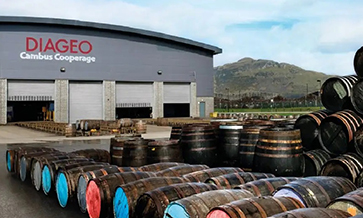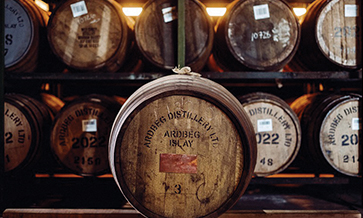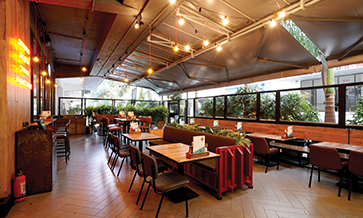Every name tells a story. Your name can tell you from whom you’ve come and where you are from says Latina poet America Luna. The Bard, on the other hand famously said, “What’s in a name? That which we call a rose by any other name would smell as sweet.”
Diametrically opposite views, but each has an important point to make. The former view is perhaps more relevant in today’s world, where perception is what matters and carries equal if not greater heft than intrinsic value.
Without the appropriate packaging, and shorn of the hype and the hoopla, intrinsic value, of the kind the Bard talks about, comes a poor second!
Brand building – of which name and nomenclature play a major part – is a structured attempt to stay above the clutter and stand out. Names, logos, events, shelf displays, advertisements, signature tunes and even ‘brand ambassadors’ are all part of a concerted effort to build an aura around a brand.
‘Phoren’ vs ‘desi’
In recent times, there has been a proliferation of Indian liquor brands from Goa that have gone for local names and, judging by the increasing number of copycats the trend has spawned, this strategy has worked wonderfully well.
Counter intuitive? Why the move when, all along, strategists have been trying to cash in on the Indian craze for anything ‘phoren’ by even giving local products grandiose-sounding Western names? Was it possible that Indian brands were increasingly gaining confidence in their ability to close the quality gap between local and foreign brands?
Or was it that the well-heeled, widely travelled, Indian middle class had overcome their craze for foreign brands and were now looking for Indian brands that could hold their own among their storied counterparts, which they could be proud of?
To try and understand the trend, we look at some of the brands with Goan names, one from each segment, including Cazulo (feni), Maka Di (beer), Mog Asun (blended Scotch whiskey) and Maka Zai (rum).
Perhaps the first brand to come out with a Konkani name was Cazulo. “In 2013 using a vernacular name for a brand was not the norm. We were the exception,” recalls Hansel Vaz, promoter of the brand. “I wanted a Cazulo premium feni to be an ambassador for the land, and thus a Konkani name was natural.”
For Kasturi Banerjee, Founder and Director of Stilldistilling Spirits, which makes Maka Zai rum, it was questions of a brand name with a regional connect. “As we are based out of Goa, we chose an Indian brand name with Konkani roots, which is also very unique and memorable in international markets,” she says.
For Anish Varshnei, Chief Production Officer, Latambarcem Brewers (Maka Di beer) it was a question of showcasing a local brand and culture. “We take pride in being ‘Goa’s own beer’. The idea was to take a locally made product global and showcase a tiny part of Konkani culture to people in different places.”
For Anand Pardeshi (Mog Asun whiskey) the brand name was the culmination of the love affair with Goa that started during his stint with a leading liquor multi-national company. “The amount of love, support and encouragement I received from my Goan partners and friends made me decide that I was going to create an international brand for Goa, in Goa, made by Goans!”
Name-sakes
For all the brands, choosing a name was critical and a lot of time and thought went into the exercise. “Maka Di in Konkani means ‘give me’. This phrase can have many connotations; but for us it’s a take on the fact that the beer is so premium that a constant want is attached to it,” points out Anish.
“Maka di is such a commonly used phrase in the Konkan region that it’s not hard to catch it and use it every now and then!” he adds.
Maka Zai is similar in that since it also uses the Konkani root word ‘maka’ in its catchy name. Maka Zai means ‘I want’ in Konkani. For Kasturi, the aim was to elevate a person’s drinking experience by providing a high-quality artisanal rum choice that is pioneering the Indian spirits industry.
“We will, hopefully, have people saying ‘maka zai Maka Zai’, which translates to ‘I want Maka Zai’!” Kasturi beams.
Anand firmed up the Goan name because of the ‘love’ connotation. The name Mog Asun is a variation of the greeting ‘mog asundi/ mog asuni’, which is what Goans say when they bid goodbye. It means, ‘let there be love’, or ‘let love remain between us’. It’s sort of a Konkani ‘Au revoir,’ he elaborates.
Hansel found an interesting ring to the three-syllable word ‘Cazulo’. “It has an interesting alphabet: Z. Cazulo (which means firefly) led us to create the central logotype: a stylised firefly radiating a warming glow – much like the feeling when our feni is consumed!” he adds.
Talking points
Kasturi decided early that she would flip conventional wisdom on its head and root for a Goan name for her artisanal rum. “Our brand name is easy to remember and pronounce. Maka Zai appeals to consumers across India, who are curious to learn the meaning behind the brand. I believe this will also be the case internationally,” she says.
Maka Zai has labels that feature the delicately etched Olive Ridley turtles that have made Goa their home, much as the young rum brand has. “I want our journey to be marked by resilience, like the Olive Ridley turtles,” Kasturi tells us. “Our design has created curiosity about the brand and spread quickly on social media.”
Anish (of Maka Di beer) also has an interesting observation. “The name is such a great starting point for an interesting conversation. This trend has been observed in the international markets as well. We are elated that a part of the Konkani culture is being represented across the globe!”
Anand’s choice of name is an attempt to ride on Brand Goa. “The world over Goa as a brand has more value, more class, than Brand India. To the rest of the world Goa symbolises a progressive version of India,” he feels.
Anand is proud that Mog Asun has now become an intimate part of the local culture and way of life. “It gladdens my heart that many Goans even consider it as part of their wedding trousseau – a sign for me that they consider it a part of their family life!” he exclaims.
Anish Varshnei had an amusing observation to make. “India is such a diverse nation with an extremely rich heritage and multiple regional languages. The word could mean one thing in one language; but have a completely different meaning in another.
“It’s always a hilarious conversation from this point onwards,” says Anish with an impish grin. We didn’t take up his offer to tell us more!












